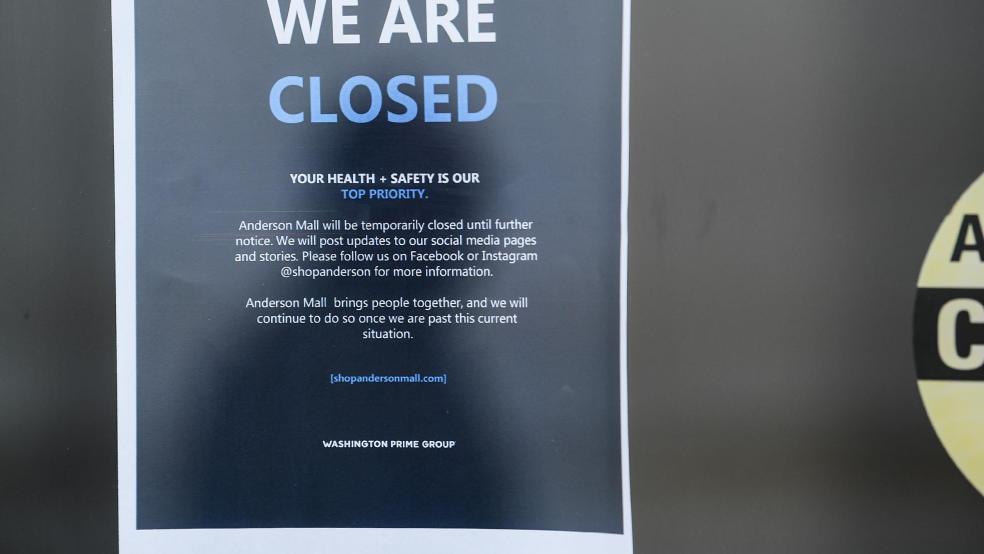Unable to agree on a variety of important details, Republicans have pushed the release of their still-developing coronavirus relief package to next week, and the delay all but guarantees that the bill won’t be ready for President Trump’s signature until next month. Chris Krueger of Cowen Research said Friday that “mid-August is not out of question for timing now,” and even that might be optimistic, given the internal divisions among Republicans and the distance between the two parties on many of the key issues.
One of the central points of contention between Democrats and Republicans will be what to do with the expanded unemployment benefits established by the CARES Act in March. The $600 per week payments will expire in a few days, without an extension or replacement waiting in the wings. As we told you yesterday, while Democrats want to extend the payments until next year, the current Republican plan is to provide a significantly smaller payment that, when combined with the usual state-level aid, equals roughly 70% of workers’ pre-pandemic wages.
Dueling views on jobless aid: Most mainstream economists see the unemployment payments as an important source of support for both the economy and for workers whose jobs have been eliminated amid widespread fear of illness and death from the coronavirus. Joseph Brusuelas, chief economist at the consulting firm RSM, said this week that the “lapse in aid to 20 million Americans that pumped roughly $116 billion into the economy in June alone will result in a slower rebound in overall economic activity during the current quarter.” He added that the data “shows just how critical that aid is to supporting the economy. Because of the inability of the political sector to put in place another round of aid in a timely manner, investors should anticipate a significant slowing in household spending and another round of permanent job losses.”
Brusuelas said the political wrangling over benefits means there will be no deal until halfway through August at the earliest, with an additional few weeks required to get the unemployment system back up to speed to handle whatever agreement lawmakers can make. “While we anticipate that Congress will approve a fifth round of fiscal aid to support the economy as the pandemic intensifies,” he said, “it is now clear that this aid will not be put in place in time to prevent an ‘air pocket’ in the economy later this summer.”
Mark Zandi, chief economist at Moody’s Analytics, told Politico that the failure to act quickly could bring the recent recovery to an end. “The economy bounced back in May and June but it’s now gone sideways and I would not be surprised to see a net job loss in July,” Zandi said. “I don’t expect the economy will go anywhere until the pandemic is over and there is a widely adopted vaccine. And if lawmakers wait more than a week or two to act there’s a very good chance we are back in recession.”
Democrats are generally aligned with the mainstream economic view and warn that ending the jobless payments could have dire consequences for the economy and for millions of families reliant on the aid. Rep. Don Beyer (D-VA) looked to John Steinbeck to make the point in more literary terms. “So far we’ve avoided the 'Grapes of Wrath' scenario of millions of Americans going hungry — of people losing their homes, people losing their cars, people just desperate,” Beyer told Politico. “That’s what we’re facing if we don’t re-up the unemployment insurance.”
In sharp contrast, many Republicans say that the generous unemployment benefits themselves are a contributing factor to the slowing recovery, and maintain that the economy would be stronger without them. Earlier this week, Sen. John Barrasso (R-WY) summed up the view, saying that the $600 per week increase in benefits acted as a “heavy wet blanket on our economy” that discourages “people from getting back on the job.” Sen. John Cornyn (R-TX) put it more bluntly: “We should never pay people not to work.”
Outside White House adviser Stephen Moore hammered the theme this week. “These benefits are not a ‘life preserver,’ but a job killer,” Moore said Thursday. “Our studies find that these high benefits will mean 10 million fewer workers on the job by the end of the year, thus killing any chance of a ‘V-shaped recovery.’”
What’s next: Republicans first have to agree on their own proposal before they can start negotiating with Democrats. One significant hurdle Republicans have to clear is the inability of state unemployment systems to handle the complicated analyses required to link unemployment benefits to income. Slashing the weekly payment to a flat $200 may serve as a backup plan.
The GOP senators also have to agree on an overall price tag for the coronavirus package, of which unemployment aid is a significant component. Senate Majority Leader Mitch McConnell (R-KY) is facing increasing pressure from fiscal conservatives to limit the cost of the proposal. At the same time, lawmakers facing tough reelection battles and plunging poll numbers may be more interested in a more robust aid package, with a higher price tag. “This may be McConnell's toughest challenge as majority leader," conservative economist Brian Riedl told NBC News.
Once Republicans agree on their approach, they then have to hammer out a deal with Democrats, who will push for more substantial support for the unemployed and much higher spending in the relief package.
Given the many constraints, the negotiations could take some time. McConnell said he could see the process dragging on well into next month. “Hopefully we can come together behind some package we can agree on in the next few weeks,” he said Friday at an event in his home state.




